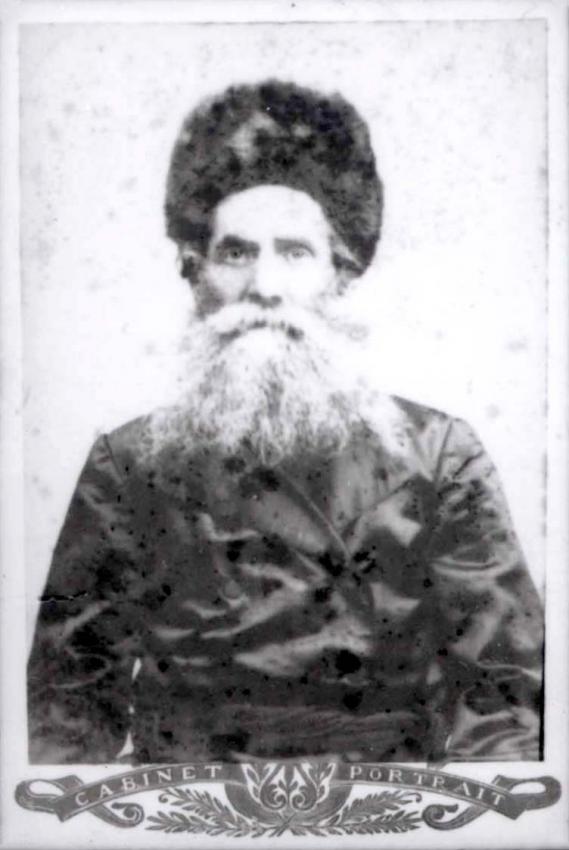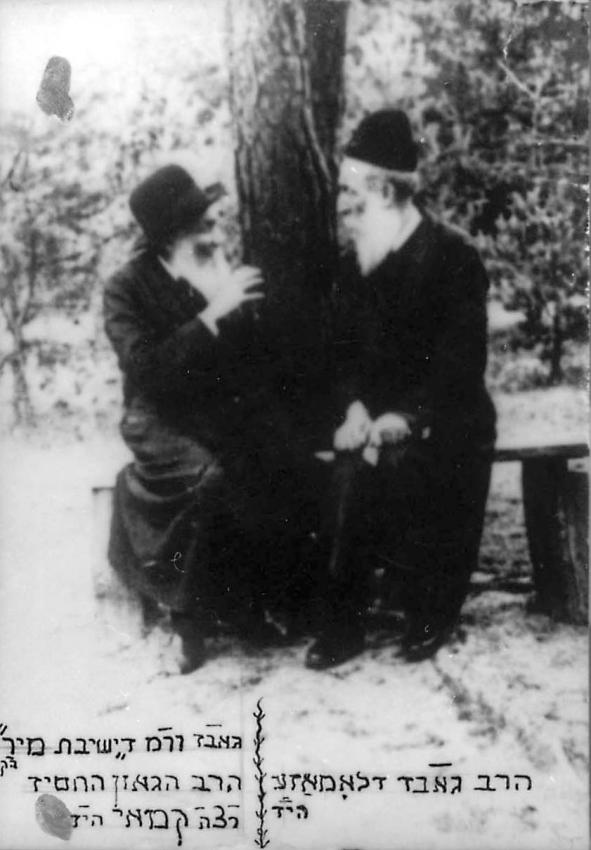The first head of the Mir Bet Din recorded in the rabbinical literature was Rabbi Moshe Eisenstadt, who arrived in Mir in 1727to serve as chief rabbi. After him came Rabbi Zvi Hirsch Hacohen Rapaport, Rabbi Yehuda Leib Mirkish, his son Rabbi Shlomo Zalman Mirkish, Rabbi Zvi Hirsch Eisenstadt and Rabbi Yosef Dovid Eisenstadt. With the death of Rabbi Yosef Dovid in 1846, the position of chief rabbi passed to his son, Rabbi Moshe Avrohom Eisenstadt, who served in the position until 1867. The two Chief Rabbis – Rabbi Yosef Dovid and his son – also served as heads of the Mir Yeshiva.
In the years 1867-1875, Rabbi Chaim Zalman Bressler served as chief rabbi. He requested to continue in both positions – chief rabbi and rosh yeshiva – but his request was fraught with tension vis-à-vis the community and as a result, the Bet Din ruled that the chief rabbi could no longer serve as rosh yeshiva. From 1875-1897, the post of chief rabbi was held by Rabbi Yom Tov Lipman Hacohen, an activist with the Hibbat Zion movement, that aspired to establish an organization in Mir for buying land in Eretz Israel. In order to further this mission, Rabbi Yom Tov met with Baron Rothschild, but he was not successful. His successor was Rabbi Eliyahu Dovid Rabinowitz Teomim (the "Aderet"), who served as chief rabbi until 1901, when he emigrated to Jerusalem. The Aderet wrote over 100 publications, including the autobiography Seder Eliyahu, in which he describes the reception he received when he arrived in Mir:
"And when I neared the city, they untied the horses and tried to carry the carriage with great festivity, but I protested, and jumped out of the carriage and said to them, God forbid you should give me this honor that I do not deserve! And then all the town's inhabitants came out, children and women holding lights and torches, and the street was filled with lamps and candles, tar barrels burning, and the windows of all the houses were alight, and tens and hundreds of people with torches in their hands danced before us, demonstrating with all their might until the streets were infused with a great heat… as if we were inside a heated home."
Rabbi Eliyahu Dovid Rabinowitz Teomim (The Aderet), Seder Eliyahu, p. 92
In 1901, Rabbi Eliyahu Boruch Kamai became chief rabbi, as well as rosh yeshiva in Mir. After his death in 1917, the position passed to his son, Rabbi Avrohom Zvi Hirsch Kamai, who had previously worked as a merchant and who headed the yeshiva together with his brother-in-law, Rabbi Eliezer Yehuda Finkel. Rabbi Kamai was the last chief rabbi of Mir. In November 1941 he was murdered by the Germans, together with his family and community.

